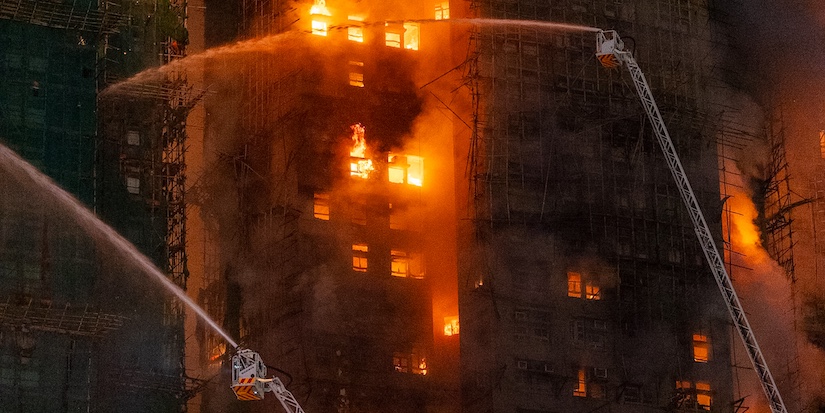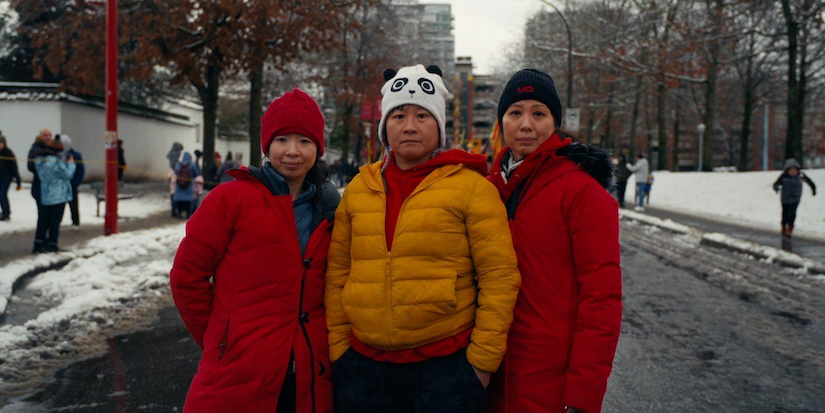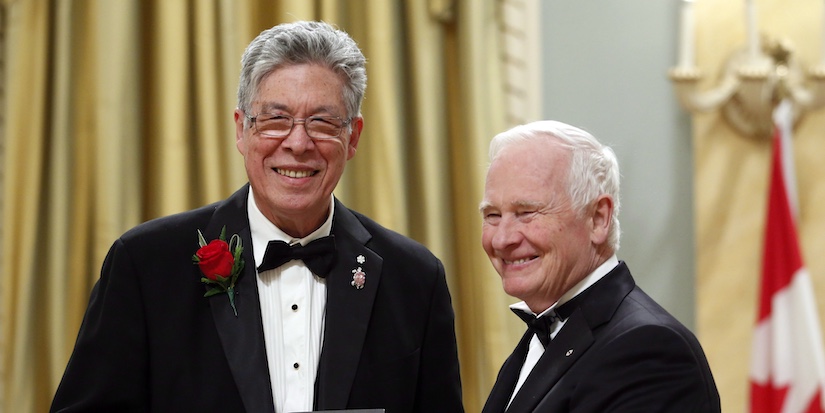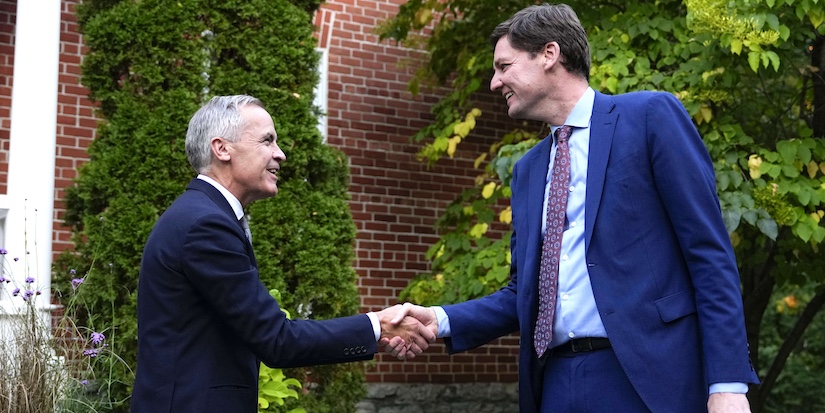Latest News
Celebrating 50 years of women in the RCMP

Published 12:44 PST, Fri December 6, 2024
Last Updated: 12:45 PST, Fri December 6, 2024
—
Since the creation of the RCMP over 150 years ago, women have played a key part in aiding in the success and survival of the force. Often times, they depended on First Nations, Métis, and Inuit women for survival in harsh and unfamiliar environments. In the 1890s, women would become more involved in the operations of the RCMP, being employed as matrons to guard women in police custody, and escorts when female prisoners were being moved from one place to another.
As the world advanced, so did the level of duties of women in the RCMP, by 1974, women had taken up roles in the organization as stenographers, typists, and even took on technical and scientific roles in the RCMP. A notable example can be found between 1922 and 1942, Dr. Frances McGill who was recognized as director of Saskatchewan forensic identification lab. On Sept. 16, 1974, Troop 17, a group of 32 women who became RCMP officers completed their training after a year and spread out across the country.
In 2024, the RCMP celebrated its 50th anniversary of women joining their agency. The Richmond RCMP proudly celebrated this anniversary by featuring a series of profiles of RCMP members serving in Richmond, briefly introducing their diverse ranks, roles, and backgrounds. In an interview conducted by the Richmond RCMP, the Richmond Sentinel wanted to highlight answers the the following questions that were asked:
1. What inspired you to join the RCMP?
2. What challenges have you faced in your career, and how have you overcome them?
3. What advice would you give to young women in policing or those considering a career with the RCMP?
Superintendent Julie Drotar: a journey of dedication and service
Superintendent Julie Drotar has had an exemplary career, spanning over 30 years, she is the senior operations officer at the Richmond RCMP, and has held many roles both in provincial and federal units in the RCMP. From the assistant LMD district commander to operational and administrative roles, Julie Drotar has done them all, while displaying dedication and excellence.
1. Being a police officer is a very rewarding and satisfying career. I joined the RCMP because I wanted to service my community and make a tangible difference in people’s lives.This profession offered me the opportunity to help others, uphold justice, and contribute to the safety of and well-being of those around me.
2. As a female police officer, I have faced various challenges, but I view each challenge as an opportunity to grow and learn. Some of these challenges pushed me to reach higher ranks in senior leadership to ensure I could be part of the positive changes within the force. This mindset has helped me overcome difficulties and continue progressing in my career. It’s important to convey that challenges do not define us; rather, how we respond to them does. By reflecting on what we can learn from each obstacle, we can pave a better path for others.
3. Take part in the conversation and assert yourself. Don’t underestimate your abilities or contribution. Embrace ambition and don’t be afraid to strive for specific duties or leadership roles. Seek mentors and build a supportive network of women who can help navigate the challenges of being a female police officer.
Corporal Melissa Lui: a journey of leadership and commitment
Corporal Melissa Lui is a seasoned RCMP officer with 17 years of service. She recently assumed the role of High-Risk Offender Coordinator for the Richmond detachment. Cpl. Lui’s career path has included significant roles such as NCO of the Richmond Economic Crime Unit (ECU), where she led complex investigations into financial crimes and spearheaded the cryptocurrency tracing program in Richmond.
Her current responsibilities involve overseeing high-risk offenders in Richmond, working closely with the Crown, Probation, and Parole officers to monitor and assess these individuals. She manages the Repeat Violent Offending Intervention Initiative (ReVOII) for Richmond, a provincial initiative aimed at reducing violent offending.
Cpl. Lui also showcases her commitment to community and public education by developing fraud prevention campaigns and presentations for Richmond residents, community groups, and media, which she delivers in multiple languages.
1. I grew up in Markham, Ontario, where there was a limited presence of RCMP officers. My knowledge of the RCMP was limited to knowing they are the police of Canada, and that it must be very special and prestigious to become an RCMP officer. After a coop program, I developed an interest in forensics, solving crimes, and investigations, it was during my university years when a friend asked if I was interested in becoming an RCMP officer, after doing some research, I learned about the application process and the wide variety of opportunities the RCMP has, and decided to give it a try.
2. What stood out to me was the Depot, our training facility in Regina where all RCMP members spent six months training to become police officers. Attending in 2006-2007, I quickly realized that being one of two asian females on the campus I was in the minority. While I was treated with respect, there was an inner sense of self-consciousness that I had something extra to prove. I struggled with the physical test, almost being sent home in my first test, and pistol qualifications. Through guidance from my troopmates and and extra classes, I was able to set a personal best PARE time of 3:30 and achieve ‘cross pistols’, a given to those who scored 225 or higher.
3. Dream big and believe you can change the world. Have the courage to take risks, there will be mistakes and adversity too. How we learn from our mistakes, and how we face adversity, will determine our success.
Constable Pancharathnarajah: a journey of courage and advocacy
Constable Pancharathnarajah is an RCMP officer with four and a half years of service who recently joined the Special Victims Unit. The unit works with BC Integrated Child exploitation and US Homeland Security to ensure thorough investigations and the protection of vulnerable individuals. She conducts interviews and monitors statements with children under 14 years old, providing critical support and advocacy for the youngest victims in our community, and she is an appointed director on the board of Out on Patrol, an organization for 2SLGBTQI+ law enforcement officers.
1. I always dreamed of becoming a police officer, but as an 2SLGBTQI+ South Asian woman and Tamil immigrant it was not in the equation growing up. My parents didn’t have that dream for me, and growing up in Scarborough, Ontario, police officers were often disliked by our community. I joined the police force to break down barriers in my culture, I wanted to show Tamil women they should always follow their dreams, never stop believing, and not allow others to decide their fate. That even though policing has historically been viewed as a man’s job, we can and must break those barriers.
2. My intersectional identity as a woman, lesbian, Tamil, and visible person of colour has produced unique challenges. When meeting new members or joining a new detachment, there are always challenges in ensuring people are comfortable with my sexuality or their ability to pronounce my name. I have also faced harsh interactions during calls from fellow radicalized people and from men of colour for being a police officer. Speaking to the South Asian community about why I became a police officer has been rewarding work for me.
3. Don’t let anything or anyone stop you from following your dreams. Not your sexuality, your cultural norms, the colour o your skin, or your gender. Keep going.
Constable Tara Joubert: a commitment to service and community
Constable Tara Joubert is a Richmond RCMP officer with five and a half years of service, she is currently a general duty investigator which requires her to be a first responder, conduct investigations, attending 9-1-1 calls, and many more. She also works closely with specialized units like the police dog service and forensic identification services.
1. Since I was a small child, I wanted to be a police officer, growing up with a father in the RCMP was extremely impactful. I was inspired by his example and stories he told, as I grew older, the inspiration developed into genuine interest in crime and law. The RCMP was my first and only choice of organization to pursue, in 2019 the dream I had of my father presenting me with my badge came true.
2. One of the challenges I initially faced was adjust to shift work and the inconsistent sleep patterns. Brain fog, lethargy, and lack of motivation during the daytime was difficult to overcome. After reading Emotional Survival for Law Enforcement by Kevin M. Gilmartin, I began to understand what was happening to my mind and body. Implementing strategies around physical movement, activity planning, and communication with loved ones, I was able to reduce the biological rollercoaster that shift work can cause, create better work-life balance, and be more engaged with my family while away from work.
3. My advice is to stay steadfast in your dream, and not let anyone dissuade you that you are too nice, or not capable of this type of work simply because you are a woman. I would also advise women interested in this line of work to reach out to your local RCMP detachment and for a ride-along with a female officer to have a firsthand look at ‘a day in the life’. This is a great opportunity to connect with a female member, hear about her personal life, and find a supportive hand during the application process.
Constable Liu: A Passion for Youth Engagement and Community Service
Constable Liu is a Richmond RCMP officer with five years of service, she serves as a key member of the Community Engagement Team – Youth Section, actively involved in the Yankee 30 program. Constable Liu works closely with probation officers and social workers, focusing on welfare and safety of youth, supporting them in navigating through challenging situations.
1. I was inspired at a very young age by a Japanese anime called Detective Conan, the main character was called Sherlock Holmes of the Japanese Era, which inspired me to read Arthur Conan Doyle’s Sherlock Holmes series. This ultimately inspired me to want to solve crimes and help others.
2. As a short Taiwanese girl who immigrated to Canada at the age of 10, I faced numerous challenges, particularly around language and physical expectations. I was an ESL student and had to take extra tutoring lessons to improve my English proficiency. Numerous people have underestimated my abilities, driving me to work harder to prove them wrong. Not letting people get on your nerves and containing your anger may be a challenge for most, but it is a must for police officers, realizing people are mad at the situation, your uniform, or themselves, but not you personally helps tremendously.
3. If at first you don’t succeed, try, try, try again. Others may not believe in you or maybe you might have doubts, but I highly recommend giving it a try if you are even slightly interested. 10 years ago due to medical reasons I withdrew my application, after recovering I reapplied and got my dream job. Join me in the world of policing and be a part of something exciting that can help change the community.
Constable Carla Tsang: strengthening policing through investigation and training
Constable Carla Tsang has been a member of the Richmond RCMP for eight years serving in the General Investigation Section. She is also a certified Public and Policy Safety Instructor, ensuring a high level of preparedness and tactical efficiency through use-of-force training. In her free time, Carla Tsang passion for martial arts has led her to become a judo coach teaching youth and adults the importance of self-discipline, respect, and confidence.
1. As a child, I had a dream to become a police officer at a young age, as my parents taught me that police are there to help people. Drawn to the iconic red serge, as I grew older, I pursued an education in accounting due to concerns about the dangers of policing. While in university, RCMP recruiters visited, and after hearing about various opportunities I decided to apply and pursue my passion for helping others through law enforcement.
2. When I first started, establishing a police presence was a challenge. At crime scenes, people often gravitated towards senior or physically imposing officers, which made it more challenging to assert authority. Going to judo classes helped me develop leadership and confidence skills.
3. Try out a martial art, such as judo, to become comfortable with physical confrontation and to develop both confidence and self-defence skills. Go for a ride-along if you get the chance, as real-life policing is very different from what is portrayed in TV shows or movies.


























